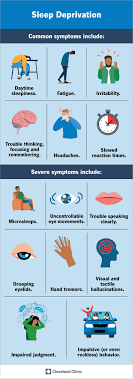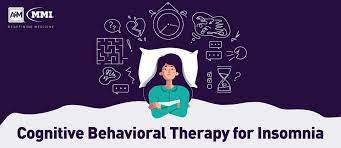Diabetes Insomnia Treatment: Managing Sleep Issues with Diabetes
For individuals living with diabetes, managing sleep issues like insomnia can be a challenging aspect of their overall health. Insomnia, characterized by difficulty falling asleep or staying asleep, can have a significant impact on blood sugar levels and overall well-being for those with diabetes.
It is crucial for individuals with diabetes to address insomnia effectively to improve their quality of life and better manage their condition. Here are some strategies for treating insomnia in individuals with diabetes:
Establish a Consistent Bedtime Routine
Creating a consistent bedtime routine can help signal to your body that it is time to wind down and prepare for sleep. This routine can include activities such as reading, listening to calming music, or practicing relaxation techniques.
Monitor Blood Sugar Levels Before Bed
Fluctuations in blood sugar levels can impact sleep quality. Monitoring your blood sugar levels before bed and making necessary adjustments can help stabilize your levels and improve your chances of getting a good night’s rest.
Incorporate Physical Activity Into Your Day
Regular physical activity has been shown to improve sleep quality. Engaging in exercise earlier in the day can help regulate your sleep-wake cycle and promote better sleep at night.
Consider Cognitive Behavioral Therapy for Insomnia (CBT-I)
CBT-I is a structured program that helps individuals change their behaviors and thoughts surrounding sleep. It has been found to be effective in treating insomnia in people with diabetes by addressing underlying issues that may contribute to poor sleep.
Consult with Your Healthcare Provider
If you are experiencing persistent insomnia despite trying various strategies, it is important to consult with your healthcare provider. They can help identify any underlying medical conditions or medication side effects that may be contributing to your sleep issues and recommend appropriate treatment options.
By addressing insomnia effectively, individuals with diabetes can improve their overall health and well-being. Prioritizing good sleep hygiene and seeking appropriate treatment can make a significant difference in managing both diabetes and insomnia.
Managing Sleepless Nights: A Comprehensive Guide to Understanding and Treating Insomnia in Individuals with Diabetes
- What is the relationship between diabetes and insomnia?
- How does insomnia affect blood sugar levels in individuals with diabetes?
- What are some common symptoms of insomnia in people with diabetes?
- What lifestyle changes can help improve sleep quality for individuals with diabetes?
- Are there specific medications that can help treat insomnia in individuals with diabetes?
- Can cognitive behavioral therapy for insomnia (CBT-I) benefit individuals with diabetes?
- How important is it to address insomnia in individuals with diabetes for overall health management?
What is the relationship between diabetes and insomnia?
The relationship between diabetes and insomnia is complex and bidirectional. Diabetes can contribute to the development of insomnia through various mechanisms, such as fluctuations in blood sugar levels affecting sleep patterns, diabetic neuropathy causing discomfort during sleep, and the psychological stress of managing a chronic condition impacting sleep quality. Conversely, insomnia can also worsen diabetes management by disrupting hormone regulation, increasing insulin resistance, and leading to poorer blood sugar control. Addressing both conditions concurrently is essential for individuals with diabetes to improve their overall health outcomes and quality of life.
How does insomnia affect blood sugar levels in individuals with diabetes?
Insomnia can have a direct impact on blood sugar levels in individuals with diabetes. Sleep plays a crucial role in regulating various hormones, including insulin, that control blood sugar levels. When sleep is disrupted or inadequate due to insomnia, the body’s ability to regulate these hormones effectively is compromised. This can lead to fluctuations in blood sugar levels, making it more challenging for individuals with diabetes to manage their condition. Additionally, sleep deprivation can increase stress hormones like cortisol, which can further contribute to insulin resistance and elevated blood sugar levels. Therefore, addressing insomnia is essential for maintaining stable blood sugar levels and overall health in individuals with diabetes.
What are some common symptoms of insomnia in people with diabetes?
Insomnia in people with diabetes can manifest through various common symptoms that can significantly impact their quality of life and overall health. Some typical signs of insomnia in individuals with diabetes include difficulty falling asleep, frequent awakenings during the night, waking up too early and being unable to go back to sleep, and experiencing non-restorative sleep. Additionally, individuals may report feeling fatigued or irritable during the day, having trouble concentrating or remembering things, and noticing changes in mood or behavior due to disrupted sleep patterns. Recognizing these symptoms is essential for addressing insomnia effectively in people with diabetes to improve their sleep quality and overall well-being.
What lifestyle changes can help improve sleep quality for individuals with diabetes?
Making lifestyle changes can significantly improve sleep quality for individuals with diabetes. Incorporating regular physical activity into your routine can help regulate your sleep-wake cycle and promote better rest at night. Establishing a consistent bedtime routine, monitoring blood sugar levels before bed, and practicing relaxation techniques can also contribute to improved sleep quality. Additionally, maintaining a healthy diet, managing stress effectively, and considering cognitive behavioral therapy for insomnia (CBT-I) are important lifestyle changes that can help individuals with diabetes experience better sleep patterns and overall well-being. Consulting with healthcare providers for personalized guidance on lifestyle modifications tailored to individual needs is crucial in managing diabetes-related insomnia effectively.
Are there specific medications that can help treat insomnia in individuals with diabetes?
When it comes to treating insomnia in individuals with diabetes, there are specific medications that can be considered under the guidance of a healthcare provider. Some medications commonly used to treat insomnia include sleep aids such as melatonin supplements, over-the-counter antihistamines, and prescription medications like sedative-hypnotics. However, it is crucial for individuals with diabetes to consult their healthcare provider before starting any new medication, as certain drugs may interact with diabetes medications or have adverse effects on blood sugar levels. Healthcare providers can recommend the most appropriate and safe medication options tailored to the individual’s specific needs and health conditions to effectively manage insomnia while considering their diabetes management plan.
Can cognitive behavioral therapy for insomnia (CBT-I) benefit individuals with diabetes?
Cognitive Behavioral Therapy for Insomnia (CBT-I) can indeed benefit individuals with diabetes who are struggling with sleep issues. CBT-I is a structured program that addresses the underlying behaviors and thoughts that contribute to insomnia. For individuals with diabetes, managing sleep is crucial as it can impact blood sugar levels and overall health. By incorporating CBT-I into their treatment plan, individuals with diabetes can learn effective strategies to improve their sleep quality, regulate their sleep-wake cycle, and address any specific concerns related to both diabetes and insomnia. Consulting with a healthcare provider to explore the potential benefits of CBT-I in managing sleep issues associated with diabetes is a proactive step towards enhancing overall well-being.
How important is it to address insomnia in individuals with diabetes for overall health management?
Addressing insomnia in individuals with diabetes is crucial for overall health management. Insomnia not only impacts the quality of sleep but also has a direct effect on blood sugar levels and can exacerbate diabetes symptoms. Poor sleep can lead to increased insulin resistance, higher levels of stress hormones, and difficulty in managing weight, all of which are significant factors in diabetes management. By prioritizing the treatment of insomnia, individuals with diabetes can improve their sleep quality, enhance their overall well-being, and better control their blood sugar levels, ultimately leading to more effective diabetes management and improved health outcomes.



